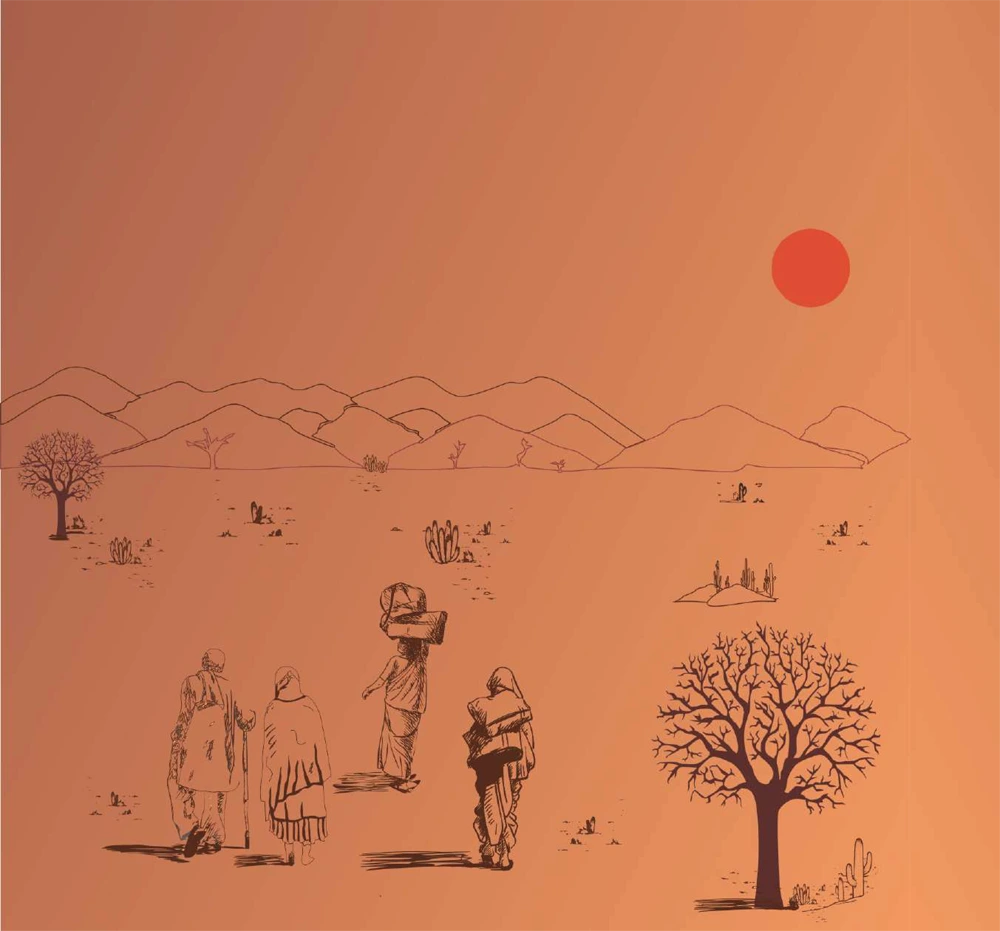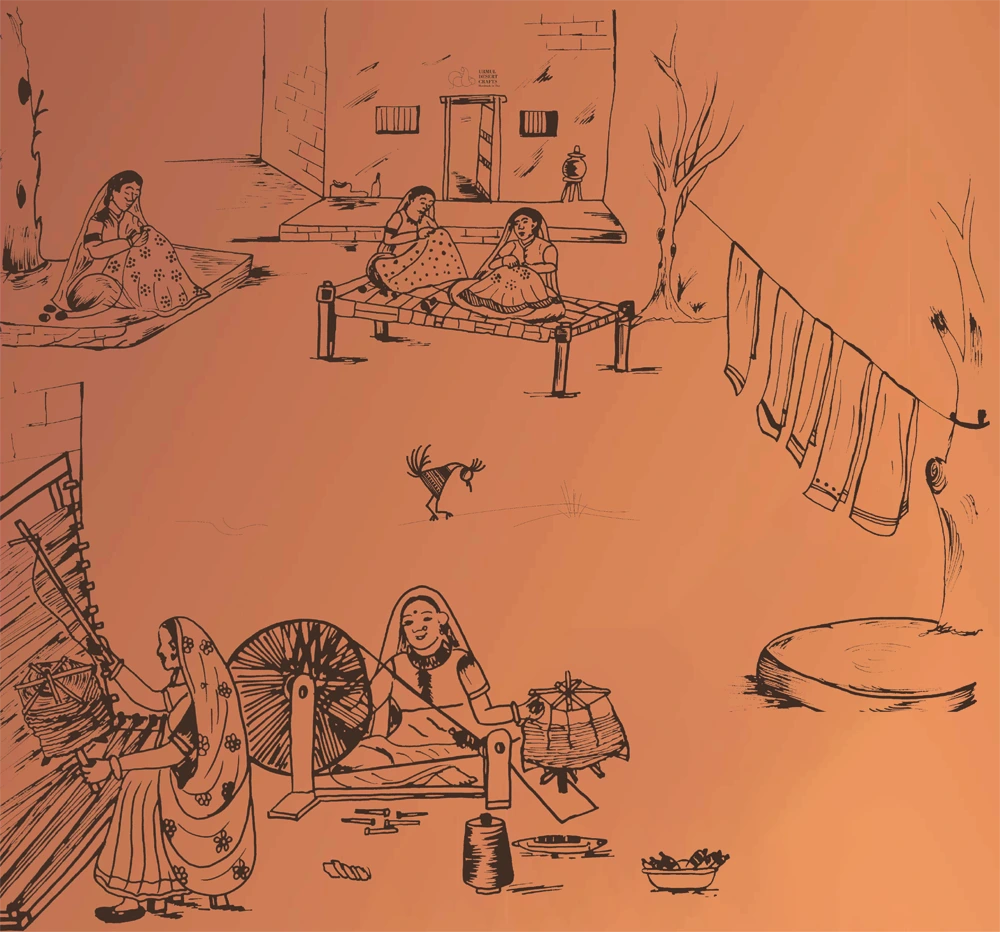History
Craft beyond borders

It is often observed that art is the first casualty during migration or division, usually disappearing completely. However, the migration of thar from Pakistan to India tells a different story. While people left their homes, lives, and land behind, they managed to preserve a part of their past by incorporating it into the very fabric of their clothes.
Their garments became a living testament to a past that continues to exist today, a past that is as ancient as the history of their communities. These individuals found themselves in refugee camps, grappling with the despair of losing everything and the daunting challenge of survival.
Despite being allotted land, life remained incredibly difficult as years of drought and limited opportunities took their toll. Unfortunately, during this time, opportunistic middlemen took advantage of the situation, exploiting women’s craftsmanship and paying them meagre wages.
Undeterred, young girls and women honed various crafts, such as kashida, not only to create their own clothes and bed sheets but also to reduce their dependence on the market. Over time, the value of their craft began to be recognized, yet these women and girls continued to receive minimal compensation. Nevertheless, due to the scarcity of work opportunities, they reluctantly accepted the exploitation imposed by the middlemen.
The craft that these women practised was a skill they carried with them, employing it not only for their own needs but also to pass it on to younger generations as a means of preserving their culture.
Crafting changes in the Thar for the Artisans
In a profound recognition of the importance of honouring artisans and celebrating their invaluable craftsmanship, Urmul Desert Craft emerged as a brand, though the roots of this endeavour can be traced back to 1990, when a cloth with intricate embroidery with colours calming the desert hung outside a hut in a hamlet near the India-Pak border.
Urmul Desert Craft born in 2015 from the Income Generation Program in Urmul Seemant Samiti, Bajju. While Urmul initially dedicated its efforts to promoting health and education, it soon realised the pressing need to create opportunities for Income empowerment within the community. Thus, in 1991, this transformative program took shape within the Urmul ecosystem, encompassing the vibrant locations of Lunkaransar, Pokaran, Phalodi, and Bajju.
At the outset of this endeavour, products infused with traditional techniques and artisanal finesse experienced a surge in demand from urban areas. With every stride forward the programme progressively enhanced its output quality and nurtured the skills of its artisans, all the while striving to expand its market reach.
In response to evolving consumer preferences and the growing demand for enhanced quality and artisanal capabilities, Urmul Desert Craft underwent a natural evolution. In 2005, it transformed into a production group, driven by the demands of the market. However, it soon became evident that the path to success lay in the continuous development and empowerment of its artisans.
Thus, in 2015, Urmul Desert Craft emerged to increase the market access and uplift the entire value chain. This endeavour led to an increase in the number of artisans, the expansion of their capabilities, and the broadening of the market space. Today, Urmul Desert Craft thrives with a dedicated team, while actively championing the cause of women artisans and fostering their leadership throughout the value chain.
This initiative stands as a testament to the collective efforts of women, who lie at the heart of this endeavour. Urmul Desert Craft not only aims to elevate women artisans but also strives to empower them in decision-making roles and leadership positions and transformative forces within the community.


